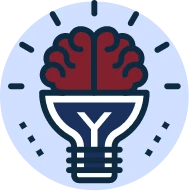Undergraduate Programmes (UG)
Candidates must have secured a minimum of 50% marks in 12th standard (Secondary School Certificate) from State Boards, CBSE, or CISCE (Council for the Indian School Certificate Examinations).
Postgraduate Programmes (PG)
Applicants must hold a bachelor’s degree in any discipline from a university/institution recognised by the UGC or an equivalent body, with a minimum aggregate of 50% marks or an equivalent grade (CGPA/CPI, etc.).
Final-year students may also apply, provided they can submit their final year degree certificate/mark sheet within the stipulated deadline. Admission will remain provisional until valid proof of passing the bachelor’s degree examination with the required percentage is submitted. Failure to do so will result in automatic withdrawal of admission without further notice.
Management Programmes
Candidates must have a valid test score in any of the following national-level entrance exams conducted in the current year:
CAT (conducted by IIMs)
XAT (conducted by XLRI)
MAT
NMAT
CMAT
GMAT (valid for five years—ensure your score remains valid until the enrolment date as per the schedule)
Note: IIMs and XLRI have no role in the selection process or conduct of the programme.
Engineering Programmes
Applicants must hold a B.E./B.Tech. degree in the relevant discipline.
Law Programmes
Candidates must possess an LL.B. degree or an equivalent qualification from a recognised university, with at least 50% marks in aggregate (45% for SC/ST and PWD candidates).
IILM University follows the UGC-mandated refund policy for all undergraduate and postgraduate programs
-full.webp)
`This advanced programme delves into the frontier of Generative AI, empowering students to develop AI models capable of creating innovative content. With a focus on deep learning, generative adversarial networks, and applications in creative industries, this programme prepares students to lead the next wave of AI-driven innovation.
-full-full.webp)
Delivering quality education with a legacy of three decades.

A strong, supportive alumni community spread across the globe.

Partnering with renowned global institutions for a holistic education experience.

Connecting students with leading employers for rewarding careers.

Eco-friendly campuses situated in prime, accessible locations.

Recognising and rewarding academic excellence with financial support.

Learn from experts with rich academic and industry experience.

Experience an engaging and dynamic environment both inside and outside the classroom.

A curriculum designed to meet global standards of education and practice.

Apply the knowledge of mathematics, science, engineering fundamentals, and an engineering specialisation to solve complex engineering problems.

Identify, formulate, review research literature, and analyse complex engineering problems, reaching substantiated conclusions using first principles of mathematics, natural sciences, and engineering sciences.

Design solutions for complex engineering problems and system components or processes that meet specified needs, with appropriate consideration for public health and safety, and cultural, societal, and environmental factors.

Use research-based knowledge and research methods, including the design of experiments, analysis and interpretation of data, and synthesis of information, to provide valid conclusions.

Create, select, and apply appropriate techniques, resources, and modern engineering and IT tools, including prediction and modelling, to complex engineering activities, with an understanding of their limitations.

Apply reasoning informed by contextual knowledge to assess societal, health, safety, legal, and cultural issues, and the consequent responsibilities relevant to professional engineering practice.

Understand the impact of professional engineering solutions in societal and environmental contexts, and demonstrate knowledge of, and the need for, sustainable development.

Apply ethical principles and commit to professional ethics, responsibilities, and norms of engineering practice.

Function effectively as an individual, and as a member or leader in diverse teams and multidisciplinary settings

Communicate effectively on complex engineering activities with the engineering community and with society at large, including comprehending and writing effective reports and design documentation, delivering presentations, and giving and receiving clear instructions.

Demonstrate knowledge and understanding of engineering and management principles and apply these to one’s own work, as a member or leader in a team, to manage projects in multidisciplinary environments.

Recognise the need for, and have the preparation and ability to engage in, independent and life-long learning in the broadest context of technological change.

The BBA programme and its real-world exposure paved my way to the University of Leeds.
BBA 2022

The BBA programme and its real-world exposure paved my way to the University of Leeds.
BBA 2022

The BBA programme and its real-world exposure paved my way to the University of Leeds.
BBA 2022
-full.webp)
Develop the ability to formulate, analyse, and resolve computational challenges by leveraging a strong grasp of mathematical, scientific, and engineering principles, alongside contemporary computing methodologies.
Acquire expertise in utilising problem-solving techniques, algorithm design, and emerging technologies such as cloud computing, artificial intelligence, data science, and security for evaluating requirements, formulating technical specifications, and crafting solutions for diverse computing challenges.
Demonstrate technical proficiency in computer science, foster collaborative learning, and cultivate teamwork through interdisciplinary projects and professional engagements.
Equip graduates with a robust understanding, technical competence, and soft skills necessary to ethically address societal needs and drive sustainable progress in emerging computing domains through continuous learning and adaptation.
Academic Qualifications
